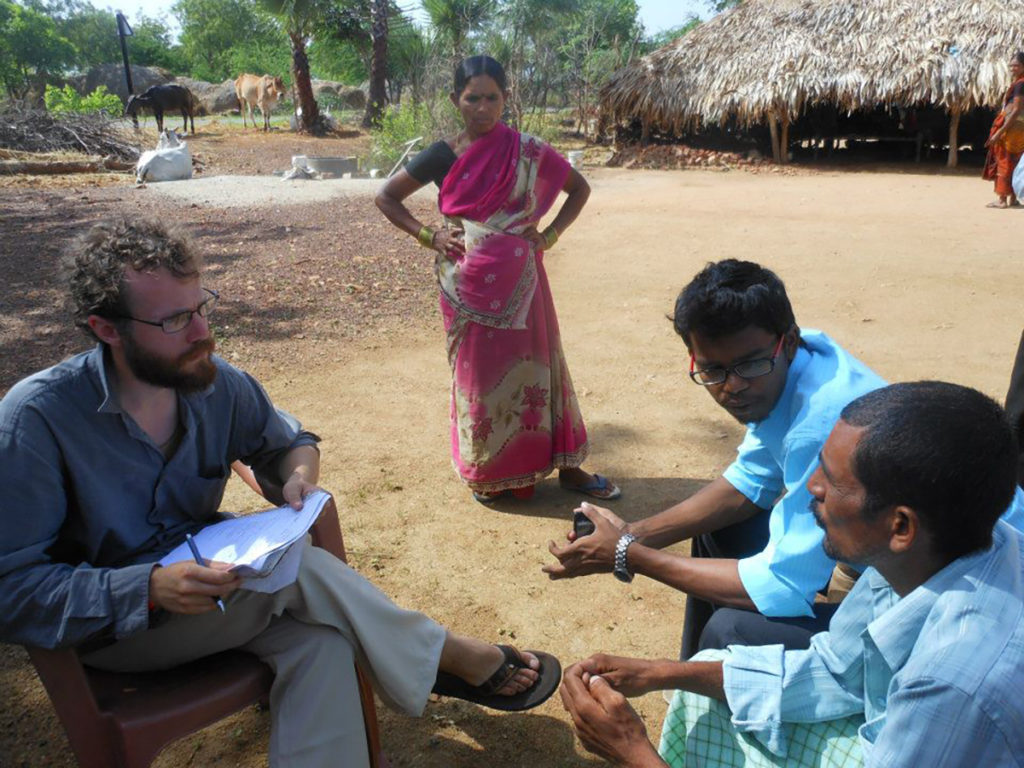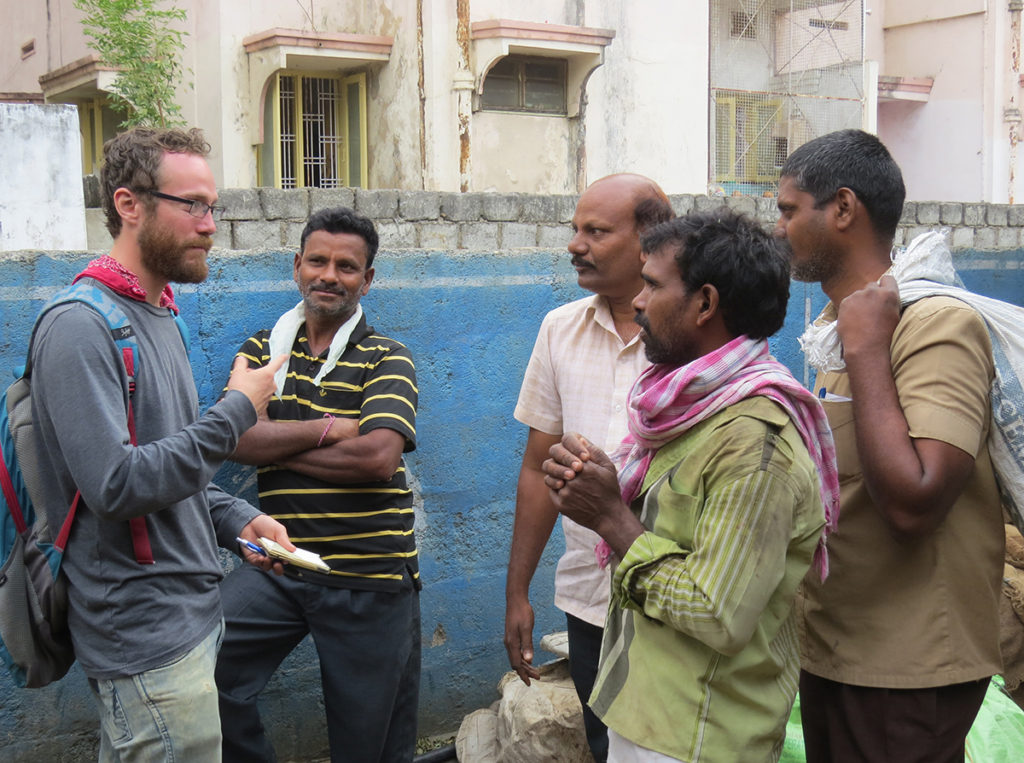Student sheds light on the relationship between our food and the land that sustains us

Andrew Flachs travels to southern India to interview farmers about their planting practices. His work explores how new technology has altered the farmers’ relationship with their land. Courtesy photo.
Can you tell the difference between a tomato and a cotton plant?
Most of the students in Andrew Flachs’ class, “Food, Power and Culture,” could not. And who can blame them? Most of us have no relationship with the land that sustains us.
“If you don’t know what the food we eat looks like, you can’t feel connected to the land or the people who bring the food to you,” Flachs said. “And when food becomes a commodity from the shelf, it’s easier not to care about the land. In fact, it becomes really hard to care.”
Flachs is graduating with PhD in anthropology from Arts & Sciences and will be traveling to Germany as a Volkswagen postdoctoral fellow. There he will expand his study of a cluster of small cotton-growing villages in southern India. For the past several years, Flachs has traveled to these farming communities — some as small as a few dozen people, others as big as 2,000 residents — and asked the people there a simple question: “What seeds are you growing this year?”
The answers reveal a fascinating shift in the relationship between farmers and their land. Since the introduction of genetically modified cotton, farmers no longer buy seeds based on their track record or established yield. Rather, they select seeds the same way many of us pick a box of cereal or a bottle of wine — by the label. One especially popular brand — Jaadoo, which means magic in Hindi — features a chicken laying golden eggs. These seeds and their many, many competitors require a very specific pesticide and fertilizer regimen that essentially takes the farming out of farming.
“Your connection to the field changes when it becomes a factory,” Flachs said. “The narrative we have invented is that the new technology improves farmers’ lives by reducing vulnerability — ‘We have this new seed and this will solve all of your problems.’ But in reality, their hopes are being exploited.”
Organic cotton farmers faced different but no less significant problems such as insect attacks and smaller yields.
So which system is better? Well neither, Flachs said. The farmers and their land would be better off if they planted a more diverse set of crops.
“The bigger issue is why does anyone grow cotton when there already is a glut,” Flachs said. “It is the same case with food. There isn’t the mismatch between food grown and hungry mouths. The problem is that hungry people don’t have the money to buy the food. That’s a totally different sort of problem that isn’t being addressed.”

In his work as an environmental anthropologist, Andrew Flachs has learned about a host of fields including agriculture, plant taxonomy, intellectual property rights law, marketing and international business. Courtesy photo.
In his research as an environmental anthropologist, Flachs has learned about a host of other fields including agriculture, plant taxonomy, intellectual property rights law, marketing and international business.
“I love that anthropology is a little bit of everything,” he said.
Still, the best part of his job is meeting others. The farmers he met openly shared their farming practices and the devastating disappointment they felt when the so-called latest-and-greatest advances failed to yield a better bounty. Flachs’ work was the continuation of a study initiated by his adviser, Glenn Stone, professor of sociocultural anthropology and environmental studies.
“I would just show up in these small villages and ask them, ‘Do you remember that scientist who came and talked to you about the seeds that you planted? I’m part of that,’” Flachs said. “I would teach and, in some cases, sleep at the local school. When you take an honest interest in people’s lives, they don’t feel wary; mostly they were amused.”
Flachs learned the local language, Telugu, and stays in touch with farmers’ kids via Facebook. The experience has reinforced his belief in the power of anthropology.
“I was was one of those people who may have gone off with my liberal arts degree to become a farmer,” Flachs said. “Turns out I was good at anthropology so I did this instead. My work is, by definition, not a controlled experiment. All of the studies that you read in Nature or Science about the impact of various farming practices are done in test fields. But the reality of farm life is that a farmer may not spray one day because his kid is sick or he had to fix a piece of broken equipment. Anthropology is the best equipped discipline to understand how things work in real life.”
by Diane Toroian Keaggy